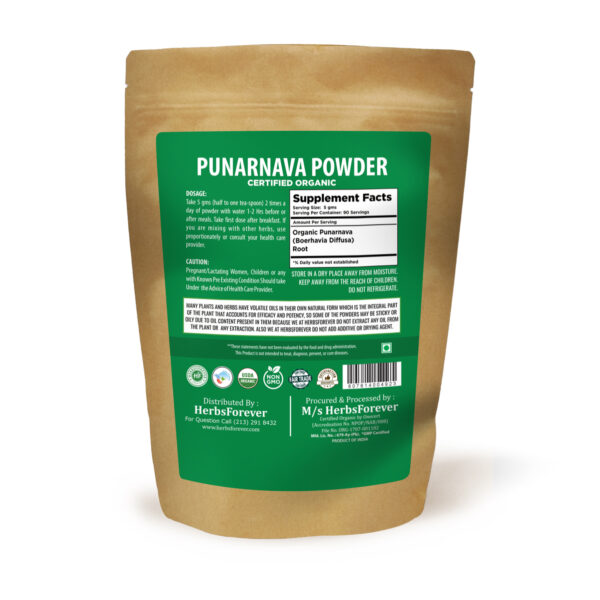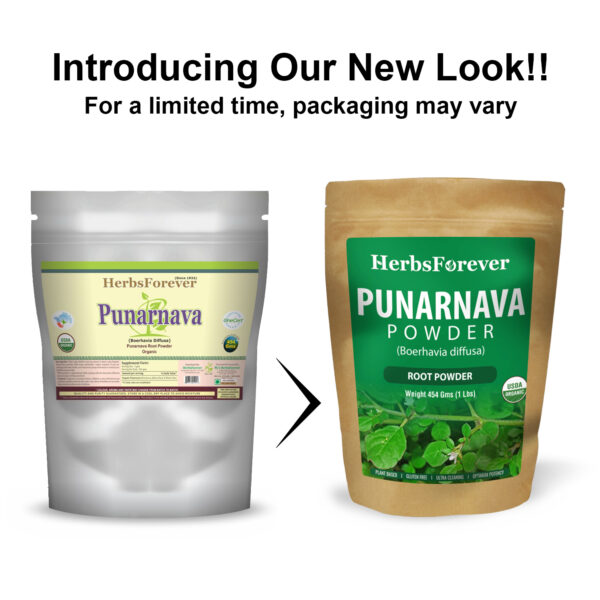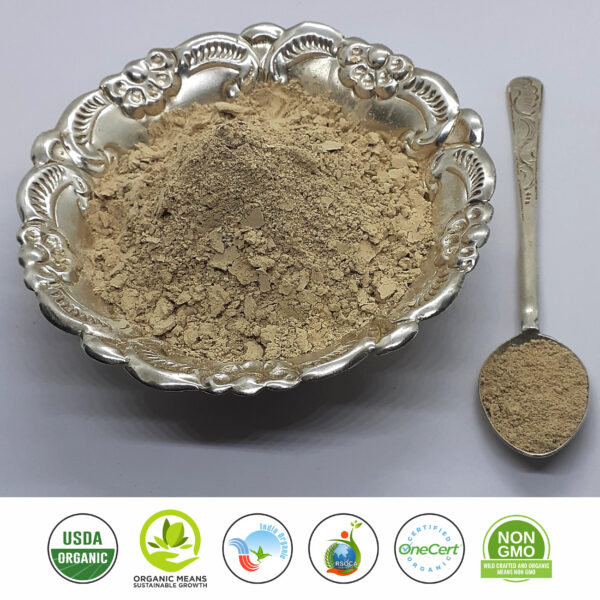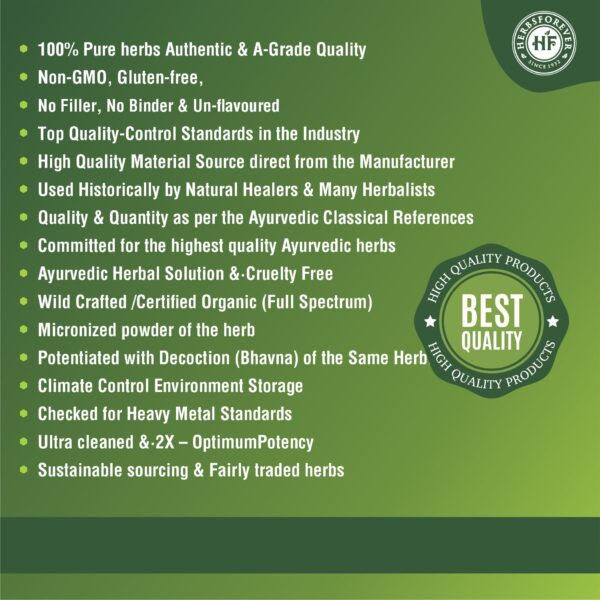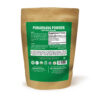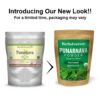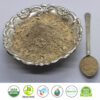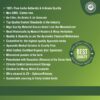Punarnava Powder Organic
Original price was: $19.95.$17.50Current price is: $17.50.
Liver Support, Urinary
- Helps to remove excess Kapha (water) dosha (humor) from the body.
- Helps to maintain balanced fluid levels which are already within the healthy state.
- This herb helps to use healthy metabolism.
- Organic and Pure Punarnava powder without additives or fillers.
- High Quality Pure micronized powder of Authenticated Ayurvedic Herb, with Optimum Potency.
- Authentic, A-Grade Quality, Ayurvedic Herb.
- 2X – Optimum Potency-Full Spectrum.
- Unflavoured, Top quality-control standards in the industry.
Directions for Use
- Take 5 Gms (half to one teaspoon) 2 times a day Punarnava Powder with water preferably empty stomach. If you are mixing with other herbs, use Punarnava proportionately or consult your healthcare provider.
- Pregnant/Lactating women, children or any with Known pre-existing condition should take under the advice of a healthcare provider. Keep away from the reach of children.
Color, Taste, Aroma of the product may change from batch to batch.
Tested for quality purity and heavy metal standards.
These statements have not been evaluated by the FDA. Our products are not intended to diagnose, treat, cure, or prevent any disease. HerbsForever is not responsible for any misuse, harm, or damage by the product in any context. The full extent of these herbs and supplement’s actions may never be completely known. It does not represent medical advice. It does not replace or substitute your physician and his prescribed treatment. Please read all the ingredients of the herb/composition carefully and do not use them if you are allergic to any of the ingredients used in the herb/composition.
| Weight | 16 oz |
|---|


